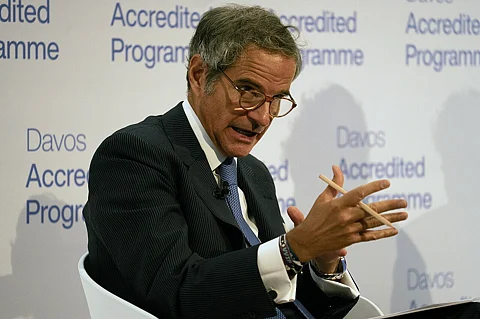

Iran has significantly expanded its stockpile of uranium enriched to near weapons-grade levels, according to a confidential report by the International Atomic Energy Agency (IAEA). The findings, seen by The Associated Press, reveal that as of May 17, Iran possessed 408.6 kilograms of uranium enriched up to 60% purity—a nearly 50% increase since February.
Enriching uranium to 60% is a short technical step away from the 90% purity required for nuclear weapons. The IAEA estimates that approximately 42 kilograms of 60%-enriched uranium, if further refined, could yield one atomic bomb. Iran’s total enriched uranium stockpile, including lower-grade material, now stands at 9,247.6 kilograms.
The report underscores that Iran is the only non-nuclear-armed state producing uranium at this level—a development the IAEA described as "of serious concern."
The findings come at a delicate moment, as the U.S. and Iran engage in stalled negotiations over Tehran’s nuclear program. While both sides have expressed cautious optimism, key disagreements persist—particularly over whether Iran will be permitted to continue enrichment under any future agreement.
IAEA Director General Rafael Grossi reiterated his call for Iran to cooperate fully with the agency’s long-standing investigation into undeclared nuclear activities. A separate 22-page report, also obtained by the AP, criticized Iran’s lack of transparency regarding uranium traces found at several sites that were never declared as nuclear facilities.
The IAEA concluded that three locations—Lavisan-Shian, Varamin, and Turquzabad—were part of a covert nuclear program active until the early 2000s. At Lavisan-Shian, the agency found evidence of uranium metal discs used in tests related to nuclear weapon detonations.
Israel swiftly condemned the report, with Prime Minister Benjamin Netanyahu’s office stating that Iran’s enrichment levels "have no civilian justification whatsoever" and urging the international community to "act now to stop Iran."
U.S. intelligence agencies assess that while Iran has not yet initiated a weapons program, it has taken steps that would enable rapid development if it chose to do so. President Donald Trump, meanwhile, suggested a deal with Tehran could still be reached, stating, "They don’t want to be blown up. They would rather make a deal."
Iran maintains that its nuclear ambitions are purely peaceful. However, recent remarks from senior officials, including advisors to Supreme Leader Ayatollah Ali Khamenei, have hinted at a potential shift in policy if international pressure intensifies.
The IAEA’s board of governors is expected to meet in early June, with Western powers likely pushing for a resolution declaring Iran in violation of its non-proliferation obligations. Such a move could lead to a referral to the UN Security Council—a step not taken in nearly two decades.
Diplomats warn that further censure could provoke Iran to escalate its nuclear activities, complicating already fragile negotiations. As the standoff continues, the world watches to see whether diplomacy can avert a deeper crisis.